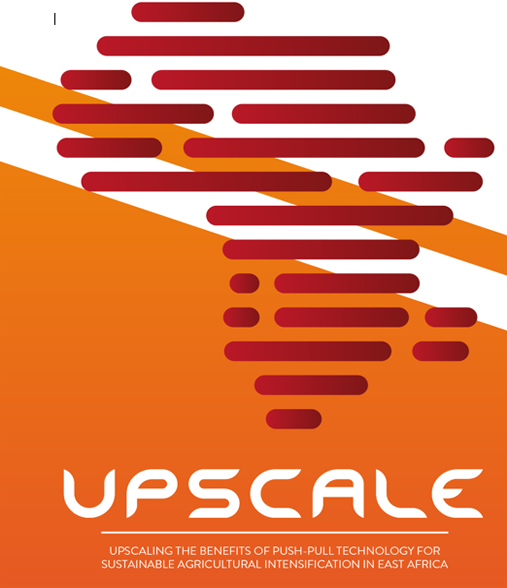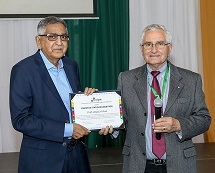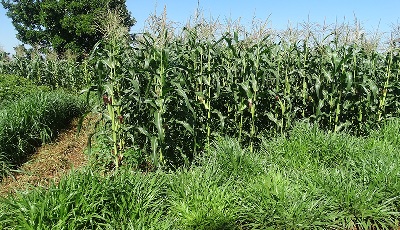Africa faces increasingly serious problems in its ability to feed its rapidly growing population, resulting in high hunger and poverty incidences. Growth in agricultural productivity is essential to reduce hunger and poverty and ensure food security. Agricultural growth can be achieved by reducing the incidence of the major constraints to productivity such as pests, weeds, and degraded soils. These constraints are responsible for the continent’s crop productivity being the lowest in the world and cause high levels of hunger, malnutrition, and poverty. Governments, donors, and stakeholders in the Agricultural value chains recognize that to address hunger and poverty, these constraints must be effectively addressed. Therefore development and deployment of technologies that would improve the sustainability and resilience of the farming systems are needed to contribute towards ending hunger and poverty in Africa and indeed the attainment of the Millennium Development Goals (SDGs). The main staple foods in the average African diet are cereals. However, despite the availability of several cereal varieties with improved yield potential, the productivity of staple cereal crops remains low, around 1t/ha. Every year there is thus a critical shortage of cereals in many smallholder households, leading to high grain prices, hunger, undernourishment, and widespread poverty. According to the World Development Report (2007), significant yield gains can be made by increasing the productivity of the cereal crops …more…>>>>
A platform technology for improving livelihoods of resource-poor farmers in sub-Saharan Africa
Dr. Amanuel Tamiru assumed the leadership of Push-Pull programme, from 1st January 2024. He is a Senior Scientist under the Plant Health Theme. He obtained a Ph.D. from Kenyatta University and holds an MSc in Biology (Insect Sciences) from Addis Ababa University and a BSc in Agriculture (Plant Sciences) from Hawassa University. He conducts cutting-edge research in plant signaling and insect-plant interactions, employing the latest behavioural and chemical ecology techniques. He has discovered, for the first time, that insect-egg deposition induces the production of bioactive... More..
Upscaling the benefits of push-pull technology for sustainable agricultural intensification in East Africa" (UPSCALE) project's third general assembly and regional stakeholders meeting in Entebbe, Uganda
The Dg., Dr Abdou Tenkouano during an orientation programme which included field visits to Push-Pull farmers.
While visiting icipe's campus in Mbita, Western Kenya, Ambassador Henriette Geiger of the
Delegation of European Union to Kenya urged agricultural stakeholders to devise the best
strategy for mitigating the negative effects of climate change by investing in climate-resilient
crops and adopting new farming methods such as Push-Pull Technology.
Kenya's 3rd Annual National Multi-Actor Community of Practice (MAC) Workshop held at Kisumu Hotel.UPSCALE aims to take key steps to realize the transformative potential of push-pull technology, to address food security, livelihoods and climate change resilience in the sub-Saharan region of East Africa, while reducing the environmental impact of agricultural practices. For this, it fosters the design, adaptation and adoption of strategies for integrated .... More..
On 31 October 2023, the Governing Council of icipe granted to Prof. Zeyaur Khan an Emeritus Scientist position in recognition of his sustained and distinguished service to icipe and for his past and continuing research on understanding of the complex mechanisms mediating insect-plant and plant-plant chemical interactions in smallholder production systems of sub-Saharan Africa and using this knowledge to develop an integrated climate smart pest and weed management push-pull farming system, and for his contribution to capacity building and mentoring the next generation of African scientists.
Fall armyworm has invaded Africa, causing substantial damage to maize and other crops.Currently,there is no control method for this pest in Africa, and pesticides are only minimally used in the continent.Climate-adapted push-pull technology overcomes stemborers, some of which belong to the same family as the fall armyworm.On-farm data confirm effectiveness of the technology in control of fall armyworm in East Africa. Read more...







